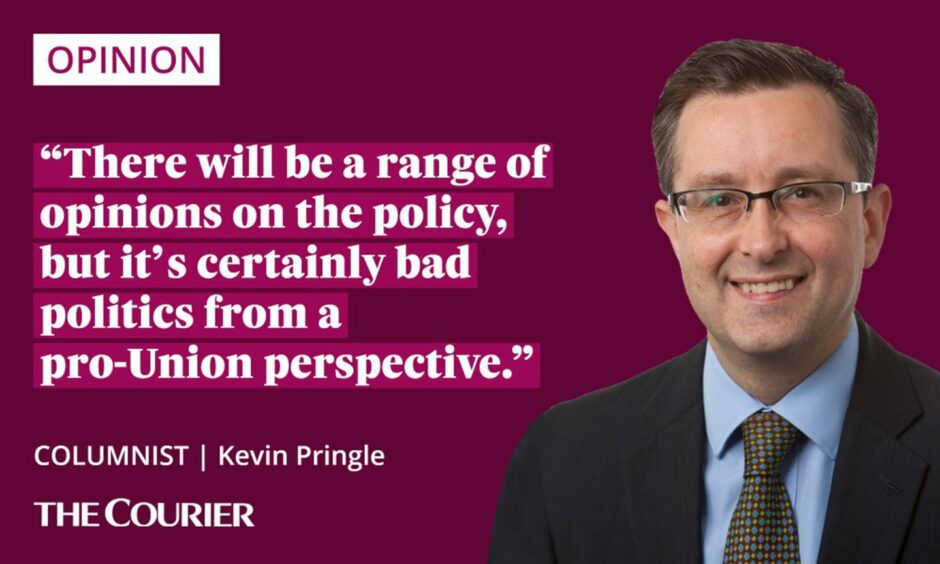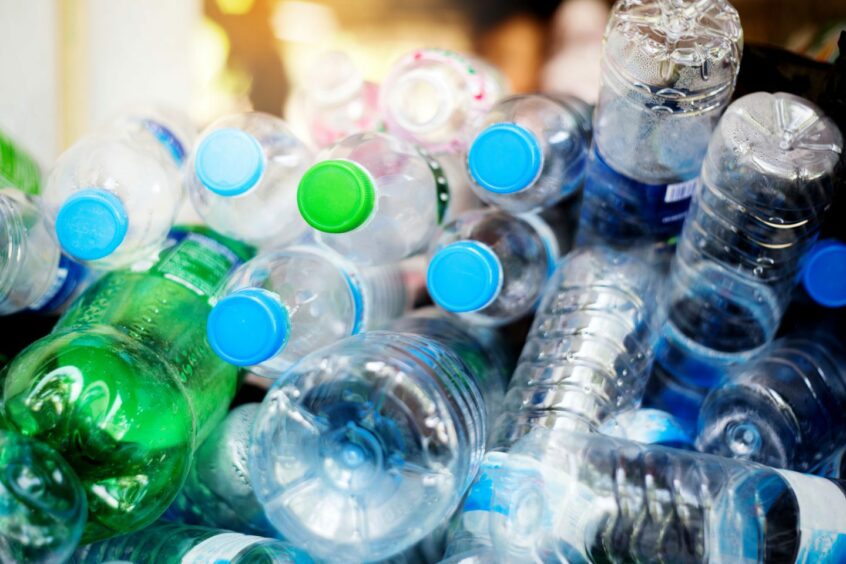From a personal point of view, the only upside to the latest row about Scotland’s deposit return scheme (DRS) is that it put me in mind of Hazel O’Connor’s 1980 debut album: Breaking Glass.
Whether the deposit return system the Scottish Government wants to introduce has been broken, as a result of a last-minute pot shot thrown from Westminster, remains to be seen.
The recycling initiative – voted for by the Scottish Parliament three years ago – would mean that customers pay 20p extra when buying a drink in a single-use container.
This deposit would be returned upon taking the empty can or bottle back to a shop, supermarket or takeaway.
So far, so simple – although the process has been tortuous. And implementation has already been delayed until March next year.

The latest crack came when no fewer than three UK secretaries of state wrote to the First Minister, Humza Yousaf, last Friday night.
They informed him that the British government is only prepared to approve Scotland piloting the kind of deposit return scheme they want to introduce south of the border.
The main difference is that glass, which has been integral to the Scottish scheme from its conception, would have to be removed from it.
Putting the detailed arguments to one side, such conduct is reminiscent of Henry Ford’s quote about his Model T car: customers could have it in any colour they wanted “so long as it’s black”.
The Westminster Government is not just trying to scupper the Deposit Return Scheme – they're trying to undermine devolution.
It's also really poor for the environment. If we don't include glass that's 600 million bottles that won't be removed from our streets, beaches and parks. pic.twitter.com/BXWFWMM7I5
— Humza Yousaf (@HumzaYousaf) May 28, 2023
When it comes to the Scottish Parliament exercising its devolved powers in this and perhaps other areas, it’s beginning to look like its ability to choose is more apparent than real.
Brexit a factor in deposit return scheme glass row
There will be a range of opinions on the policy, but it’s certainly bad politics from a pro-Union perspective.
If people think that the post-Brexit version of devolution is being weakened, my hunch is that support for independence will stay strong and could rise further.
It’s scarcely credible for Conservatives to claim that Holyrood is “one of the most powerful devolved parliaments in the world” – a mantra of theirs for several years – when it may be denied the ability to include glass bottles in a recycling scheme.
It’s important, but hardly a high matter of state.
The new factor is the Internal Market Act of 2020, a post-Brexit instrument designed to prevent barriers to trade across the UK, now that we are no longer members of the European single market.
The irony is that the rules of the British single market appear to be imposing far greater uniformity and integration than the arrangements governing membership of the EU ever required of the UK or its constituent parts.
Westminster can change plans too
There is an obvious case for systems in our different nations to work in harmony, but no reason why that should be done on terms unilaterally imposed from Westminster.
The Welsh Government also intends to have glass in its deposit return scheme. Why don’t UK ministers “level up” their plans for England in line with democratic decisions taken in Edinburgh and Cardiff?
“It is the UK that have changed what they wanted to do in England…and then they have tried to impose this change on us”
Scottish Greens' Lorna Slater calls excluding glass bottles from a deposit return scheme a "democratic outrage"#BBCSundayShow https://t.co/4TVv1nsrgc pic.twitter.com/oDfjgHpa1N
— BBC Politics (@BBCPolitics) May 28, 2023
Such an inclusive approach is strengthened by the fact that Tory MPs stood on a manifesto at the last general election which pledged them to “introduce a deposit return scheme to incentivise people to recycle plastic and glass.”
According to Scottish ministers, all bar six of the 51 deposit return schemes worldwide include glass.
Given he may be prime minister next year, there is an opportunity for Labour leader Keir Starmer to sound a more reasonable note, both on this issue and relations with the devolved administrations more generally.
Otherwise, instead of 10 green bottles, it could be case for the Union that accidentally falls.












Conversation